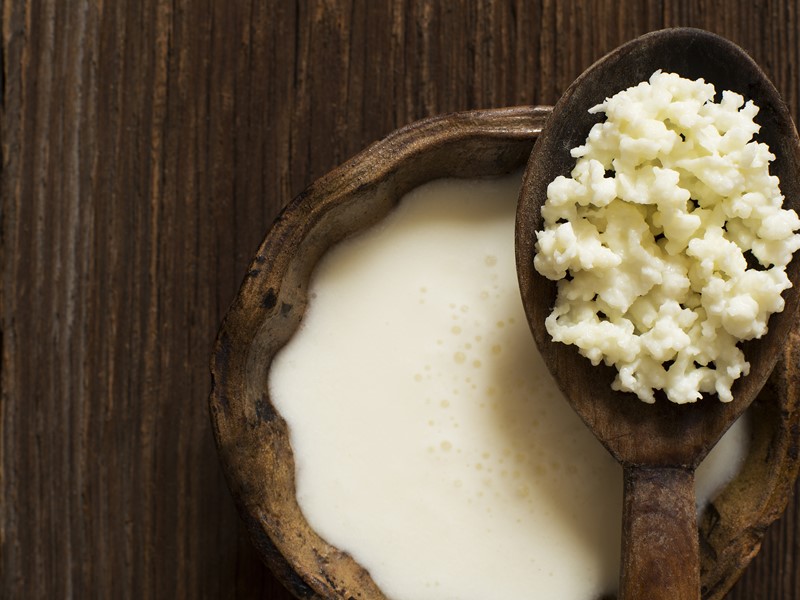SYMMETRIA®
BLOG

What do you know about kefir?
There are trillions of microorganisms living in the human body, and these affect the body in various ways, such as regulating blood sugar levels, causing changes in metabolism and affecting body weight. The collection of all the microorganisms that are naturally found in the body of every human being is referred to as the body’s microflora or microbiome.
As part of an interesting study that was carried out in 2006, microbiologist and immunologist Peter Turnbaugh and his colleagues took samples of intestinal microbiomes from obese and overweight mice, and placed them in mice at a normal weight, in order to examine the possible link between intestinal microflora and obesity. The results showed that in just over three months, the mice had experienced a significant increase in weight, as well as in body fat. Although research on the relationship between body weight and microflora is still in early stages, there are extensive references reporting on the positive effects of microflora on the body.
But how can we make sure that we have a strong, diverse microbiome? The answer is simple: We need to eat a variety of foods from all food groups, including foods that contain microorganisms, known as probiotics – kefir is a common example of a priobiotic food product. It is produced from various types of milk, such as cow, goat, sheep, and even coconut and rice milk. Each type of milk is fermented by adding kefir grains to it, which contain lactic acid bacteria, yeast, and polysaccharides. While the kefir grains are in the milk, various enzymatic fermentation reactions take place, and the milk is enhanced with new, healthy colonies of microorganisms. This results in a thick dairy drink, with a slightly spicy taste, that is quite similar to yoghurt in both texture and flavour. Kefir is a great option for supporting intestinal microflora, and offers a variety of benefits to the body.
From a nutritional aspect, kefir is an excellent source of protein, as it contains 8-11g per cup, making it ideal for people who exercise regularly, as well as children and adolescents who are still growing, and people on weight loss programmes, as it helps them maintain their muscle mass. Kefir also contains a variety of vitamins, with excellent vitamin A and vitamin D content. In addition to this, it is rich in calcium and magnesium, two minerals that are particularly important to the overall health of the nervous system. Unlike yoghurt, kefir contains different microorganisms that are beneficial to gut health, such as those of the genus Lactobacillus Caucasus, strains of Streptococcus, yeasts etc. This supports the intestine by providing a wealthy of different microorganisms, resulting in the synthesis of vitamin K and B12 in the intestine.
Do you like our content?
SUBSCRIBE
to keep up with SYMMETRIA's® latest news, partnerships, offers, new protocols and products
This site is protected by reCAPTCHA and the Google Privacy Policy and Terms of Service apply.
